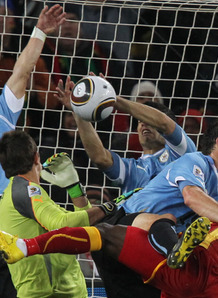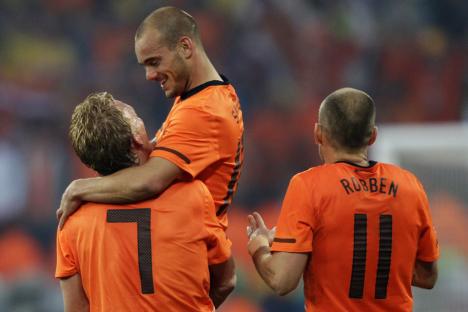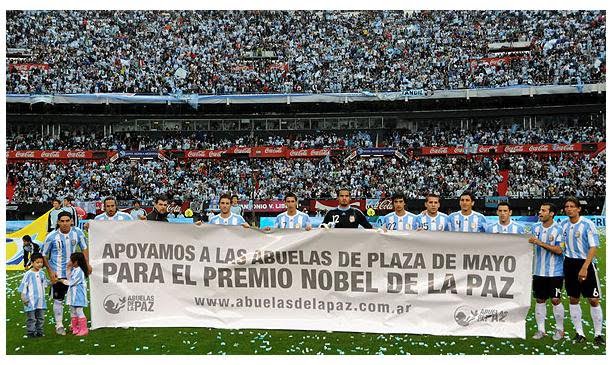
Suarez’s Hand of God lite has once again put the refereing and rules of football in the spotlight. This time the referee made the correct decision to send off Suarez for his handball but was it Asamoah Gyan who twatted the penalty, which meant Ghana didn’t win the regular game but lost in penalties. Our sense of fair play is outraged by this, that somebody can blatantly cheat and get punished for it yet still get his team in the semi-finals. Together with several other high profile incidents like England’s disallowed equaliser against Germany which sent them out of the Worldcup there’s been somewhat of a clamour for changes in the rules, you may have noticed.
First there was the call on FIFA to finally introduce proper goal line technology and television replays, after that disallowed England goal and an Argentine goal against Mexico that was blatantly offside but not spotted by the refs, both on the same day. In both cases the goals were turning points in the game and if not for the decision they could’ve taken a different turn. Had there been goalline detectors to show the ball had crossed the line in the first case, or had video replays been officially available to the refs in the second, these injustices would’ve been prevented.
With Suarez, the outrage is focused not on the decision, but on the sanctions. Somehow after Uruguay went on to win their game on penalties, having Suarez sent off and a penalty awarded just did not seem enough. Various pundits, fans and interested bystanders instead would’ve liked to have seen not a penalty, but a goal awarded in situations like this. That way we would be certain cheaters aren’t rewarded.
These calls are understandable, but misguided. Lawyers have a saying: hard cases make bad law and that goes for football as well. Handballs are a dime a dozen, but situations like we saw in Uruguay-Ghana game are incredibly rare. In more normal situations, where a handball might have prevented a goal but the game is far from over anyway, to punish a team with a goal and a sending off is too harsh — a penalty will suffice and is usually succesful anyway. Guaranteed goals also go against the spirit of football in which only actually scored goals count and which doesn’t deal with goals that should have been scored. That’s part of the charm and frustration of football.
The need for more technology I sort of share, but I can also understand why people other than Sepp Blatter disagree with that. Again, the two examples above are so rare and so blatant it’s not that likely they will be repeated often. In fact, technology wasn’t actually needed in either of them, just referees which weren’t halfblind and looking the other way.. For more ordinary, less obvious situations the question is how to integrate this sort of technology in the flow of the game. It’s easy to use video playback to retroactively disallow a goal, but if a referee has disallowed a goal and the game goes on, how do you go from there? Would we really want to make football into a more static game, ala rugby or American football, where coaches can challenge decisions on the field?

